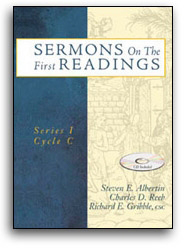SermonStudio
No Middle Ground
Sermon
Sermons On The First Readings
Series I, Cycle C
It was the dirty secret. We were never supposed to talk about it openly. When it was discussed, it was in hushed whispers behind the closed doors of private homes. No, it had nothing to do with sex. It had to do with why my best friends would never eat meat on Fridays. It had to do with that strange ritual called the Rosary. It had to do with those strange women dressed in black and white who looked like penguins. I grew up in a small southeastern Wisconsin town in the 1950s where the majority of the population was either Lutheran or Roman Catholic.


